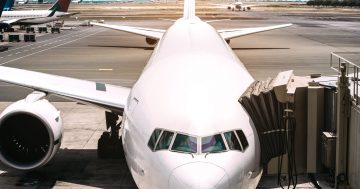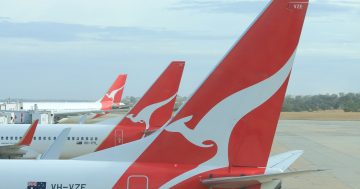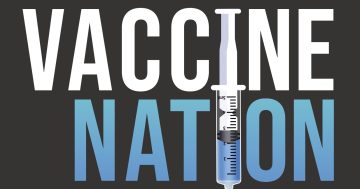Dan Schawbel* believes a significant proportion of business travel will be gone for good in a post-pandemic world.
 Aside from socialising with friends and enjoying my favourite restaurants, the aspect of pre-COVID life I miss most is travel.
Aside from socialising with friends and enjoying my favourite restaurants, the aspect of pre-COVID life I miss most is travel.
I used to fly to a location, have dinner with some new acquaintances, wake up to give a presentation, and fly out a few hours later.
Or, I would go on my annual vacation with friends to a new country that I had yet to explore.
Travel broke up my year and was an integral part of my business and personal life.
Like many of you, I haven’t been on a plane since before March last year and had to cancel a variety of trips.
Travel is on everyone’s mind right now because the COVID vaccine has given us a light at the end of what has seemed to be a never-ending tunnel.
Historically, business travel has taken longer to recover than leisure travel.
In the 2008 recession, it took five years for business travel to recover compared to two years for leisure travel.
With organisations prohibiting or limiting business travel, employees preferring to remain isolated, and country travel restrictions, the global market for business travel is expected to decline again this year.
Last year alone, the business travel industry — which includes airlines, rental car companies, and hotels — lost about one trillion dollars.
The Institute of Travel Management found that travel budgets are projected to be down between 25 and 50 per cent in 2021.
Recovery is going to be slow and challenging for many reasons: Mandatory quarantines; the legal liability companies could incur from employee medical costs; a lack of budget from the recession, and apprehension around in-person meetings.
At the end of the day, companies and their leaders would much rather save money, deal with fewer hassles, and keep employees and their communities healthy during this unpredictable period.
There’s one thing most people are certain of: Business travel will return in phases instead of all at once.
This is because there’s currently a wide spectrum of legal restrictions and individual comfort levels, both of which could remain in a state of uncertainty for some time.
Global consultant company, McKinsey predicts that regional and domestic travel will return first, then in-person sales and client meetings, and the hardest-hit sectors will be the last to bounce back.
One in five companies say their employees will be able to travel when a “significant portion” of the population has been vaccinated, yet over half remain unsure about its availability.
Because of the optimism around widespread vaccination, some companies have begun planning their business travel for 2021.
However, a recent poll of chief financial officers found that more than half believed business travel would “never return to pre-pandemic levels”.
Speaking at the New York Times’ Dealbook Conference, Bill Gates predicted that more than 50 per cent of business travel and more than 30 per cent of days in the office would never come back.
He said there would be a “very high threshold” for business travel, and emphasised that companies should urge employees to stay local unless there’s a justifiable reason to travel.
Because of this shift, in-person meetings will become a luxury. Business travel could become a bigger perk than ever before, or it might be reserved for certain departments or levels within an organisation.
In-person meetings will be seen as more beneficial for brainstorming, reinforcing social connections, and trust-building.
Any revenue-generating meetings will be prioritised because of the justification to the bottom line.
Even if companies are encouraging their employees to travel, there will be push-back from employees who don’t feel comfortable doing so.
Before even contemplating a travel booking, employees will want much more information to feel confident about flying again.
A US survey has found people split on the issue, with about half saying they would “feel guilty traveling right now” and the other half saying they’ve “lost interest in traveling for the time being”.
Some believe that travel should be limited to essential needs, and almost two-thirds feel that vaccine developments make them “more optimistic about life returning to normal”.
Younger generations will be more likely than older ones to resume business travel because they are less affected by COVID at their age.
Millennials, who enjoyed mixing business and pleasure pre-COVID, will be more eager than their older counterparts to resume work trips that can be extended into vacations.
Men will be more likely than women to resume business travel because women are handling more childcare responsibilities during COVID.
Job title and function will also play a factor in who gets to travel or remain remote. For example, salespeople will be more likely than accountants to travel.
Companies will have to continue to make constant, almost daily decisions based on country travel regulations, the pulse of their workforce, and the nature of their business.
Leaders will need to be nimble, adaptable, and thoughtful as they think about travel budgeting, employee expectations, and legal implications.
Trying to force hesitant staff on a flight or into an office won’t be acceptable in most situations and could lead to lawsuits and backlash.
Travel has always been a key part of our business life and operations.
While we’re all dreaming of a return to normalcy, we have to accept the ‘new normal’ that’s being created in our evolving world of work as we strive together to overcome the pandemic.
*Dan Schawbel is a bestselling author and Managing Partner of Workplace Intelligence, a research and advisory firm helping HR adapt to trends, drive performance and prepare for the future.
This article is part of his Workplace Intelligence Weekly series.











